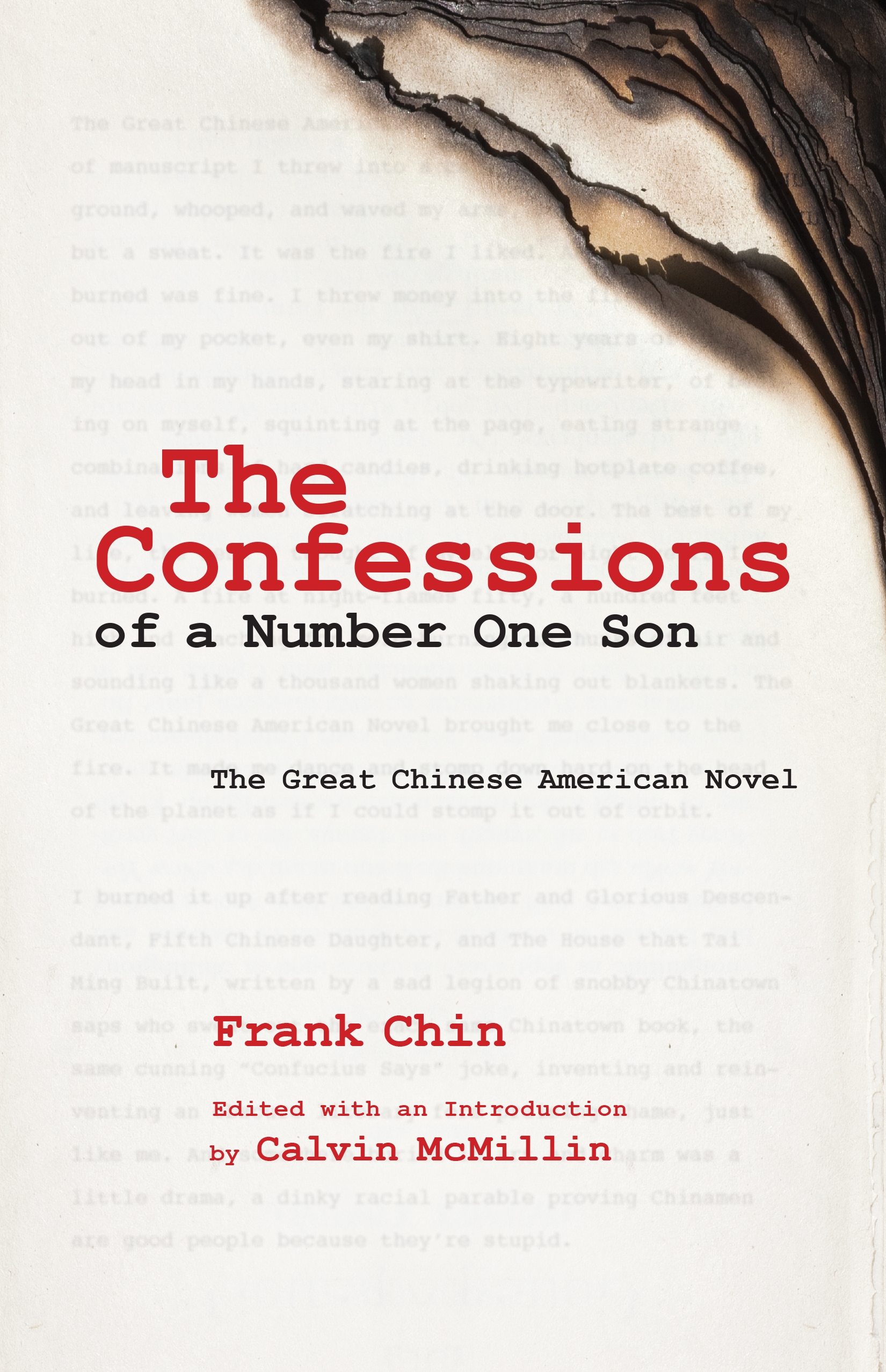The Confessions of a Number One Son: The Great Chinese American Novel
- About the Book
-
In the early 1970s, Frank Chin, the outspoken Chinese American author of such plays as The Chickencoop Chinaman and The Year of the Dragon, wrote a full-length novel that was never published and presumably lost. Nearly four decades later, Calvin McMillin, a literary scholar specializing in Asian American literature, would discover Chin’s original manuscripts and embark on an extensive restoration project. Meticulously reassembled from multiple extant drafts, Frank Chin’s “forgotten” novel is a sequel to The Chickencoop Chinaman and follows the further misadventures of Tam Lum, the original play’s witty protagonist.
Haunted by the bitter memories of a failed marriage and the untimely death of a beloved family member, Tam flees San Francisco’s Chinatown for a life of self-imposed exile on the Hawaiian island of Maui. After burning his sole copy of a manuscript he believed would someday be hailed as “The Great Chinese American Novel,” Tam stumbles into an unlikely romance with Lily, a former nun fresh out of the convent and looking for love. In the process, he also develops an unusual friendship with Lily’s father, a washed-up Hollywood actor once famous for portraying Charlie Chan on the big screen. Thanks in no small part to this bizarre father/daughter pair, not to mention an array of equally quirky locals, Tam soon discovers that his otherwise laidback island existence has been transformed into a farce of epic proportions.
Had it been published in the 1970s as originally intended, The Confessions of a Number One Son might have changed the face of Asian American literature as we know it. Written at the height of Frank Chin’s creative powers, this formerly “lost” novel ranks as the author’s funniest, most powerful, and most poignant work to date. Now, some forty years after its initial conception, The Confessions of a Number One Son is finally available to readers everywhere.
- About the Author(s)
-
Frank Chin, Author
Calvin McMillin, Editor
- Reviews and Endorsements
-
"Chin takes the reader on a twisted trip, packed both with raunchy comedy and poignant tenderness. . . . McMillin did an excellent job of keeping Chin’s writing intact while cutting out repetitions or segments that went nowhere [and] should also be applauded for compiling one of the best biographical sketches of Chin, to date. The publication of “Confessions” affirms Chin’s rightful place as a literary giant, not only within the confines of Asian American literature, but in the global literary world." —Nichi Bei Weekly
"Suspense builds as the novel becomes a darkly comic struggle with illusions, expectations and secret desires. . . . [Chin] writes fluidly, creates strong characters, and has a playwright's ear for dialogue." —Honolulu Star-Advertiser
"A spontaneous mix of reality and fantasy in this book contrasts with the underlying message about the damage people of color have endured because of racial prejudice. . . . Chin’s unique characters, with names like Gravelly Lake Ponders and Lily, the forty-three-year-old ex-nun, interact with convincing craziness." —Foreword Reviews
"This heretofore unknown work captures the birth of a consciousness that is neither Asian or white American, but a third thing we witness being forged in the mind of its author. Its publication now should spur renewed interest and a critical reevaluation of the entirety of Frank Chin’s work, and cement his literary legacy." —The International Examiner
—http://www.uhpress.hawaii.edu/p-9342-9780824838928.aspx- McMillin has done a commendable job in assembling, from various scattered drafts of Chin’s novel, abandoned about four decades ago, a typescript of 662 pages and then cutting material used in later stories and novels to result in the version now published. . . . When the novel was written, [Chin's] style was more flamboyant, as in ‘The shimmying flames [from his burned manuscript] sucked up and sneezed winds that slapped me around and made me squint to see through dust, weeds, and small rocks flying at my face. Twang Slanty, El Chino, rides again.’
—World Literature Today (September 2015)
- Supporting Resources
-





